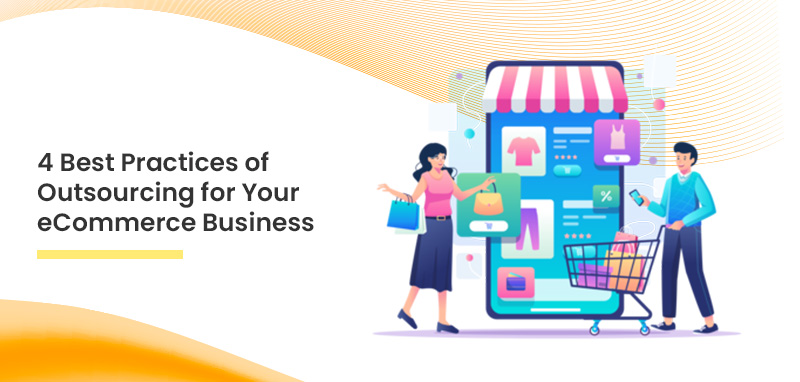4 Best Practices of Outsourcing for Your eCommerce Business
Outsourcing has become a crucial strategy for eCommerce businesses looking to scale efficiently and streamline operations. Whether you're an emerging online store or a well-established eCommerce brand, outsourcing can help manage complex tasks, reduce costs, and enhance the customer experience. However, to truly benefit from outsourcing, you must implement best practices that ensure you’re working with reliable partners and optimizing your resources. In this article, we will explore four best practices that eCommerce businesses should follow when outsourcing.

1. Clearly Define Your Objectives and Needs
The first step in successful outsourcing is to have a clear understanding of your business goals and the specific tasks you want to outsource. This might include customer support, order fulfillment, content creation, website maintenance, or even marketing activities. Without clearly defined objectives, you risk miscommunication and poor service delivery from your outsourcing partner.
Start by identifying the pain points or areas in your business that are consuming too much time, energy, or resources. For example, if managing customer service inquiries is slowing down your team, outsourcing this function can free up internal resources and allow your staff to focus on more strategic tasks. Similarly, if handling order fulfillment is becoming a logistical nightmare, outsourcing to a specialized company can ensure that your customers receive timely deliveries.
2. Choose the Right Outsourcing Partner
Selecting the right outsourcing partner is critical to the success of your eCommerce business. The partner you choose should align with your company's values, standards, and long-term goals. When searching for an outsourcing provider, look for a partner with a proven track record in your industry. Read reviews, ask for references, and assess their case studies or past work to gauge their reliability and expertise.
A significant part of finding the right partner is understanding their cultural fit with your business. For example, if customer service is a high priority for your brand, ensure that your outsourcing partner shares a similar philosophy on customer satisfaction. Additionally, evaluate their communication style and availability. Frequent and transparent communication is essential to ensure smooth collaboration.
3. Maintain Strong Communication and Collaboration
Even though outsourcing means delegating certain tasks to an external partner, it doesn’t mean that you can take a hands-off approach. Continuous and clear communication is vital for the success of any outsourcing relationship. To avoid misunderstandings or missed deadlines, establish regular communication protocols such as weekly calls, progress reports, and real-time collaboration tools.
Collaboration should be prioritized, especially if the outsourced tasks directly affect the customer experience. For example, if you're outsourcing customer service, your team should work closely with the outsourced team to ensure they have the necessary training, product knowledge, and tools to handle customer queries effectively. This is especially important for eCommerce brands that sell complex or technical products, where a lack of knowledge can lead to a poor customer experience.
It’s also important to create clear documentation for processes that will be outsourced. This helps the outsourcing partner better understand your expectations and ensures consistency in how tasks are handled. Use project management tools like Trello, Asana, or Slack to stay organized and track progress. These tools facilitate real-time updates and help address any issues as they arise.
4. Focus on Building Long-Term Relationships
While outsourcing might seem transactional, focusing on building long-term relationships with your outsourcing partners can yield better results. Long-term partnerships allow your outsourced teams to become familiar with your business model, brand, and customers, leading to better service quality over time.
By nurturing these relationships, you gain the ability to adapt and grow with your partner. As your eCommerce business expands, your outsourcing needs may also evolve. A long-term partner who understands your goals and business structure can quickly adjust and scale services to meet these new demands.
Conclusion
Outsourcing can be a game-changer for eCommerce businesses looking to grow without overburdening their internal teams. By defining clear objectives, selecting the right partner, maintaining strong communication, and focusing on building long-term relationships, you can maximize the benefits of outsourcing and set your business up for sustained success.
